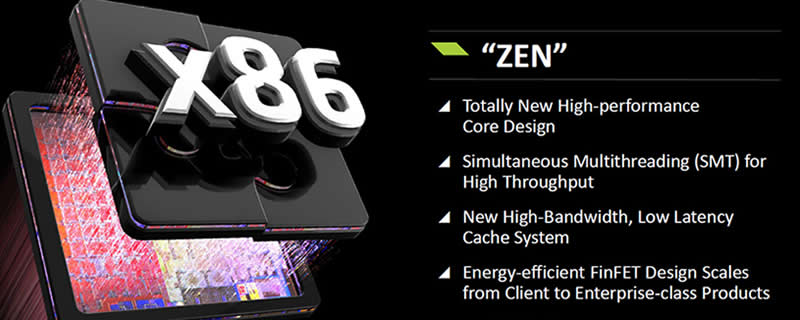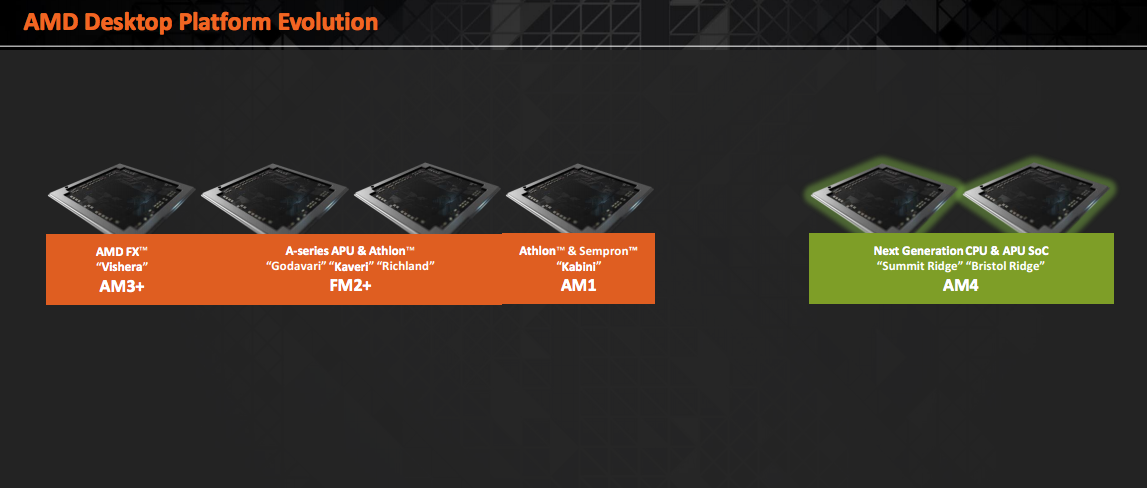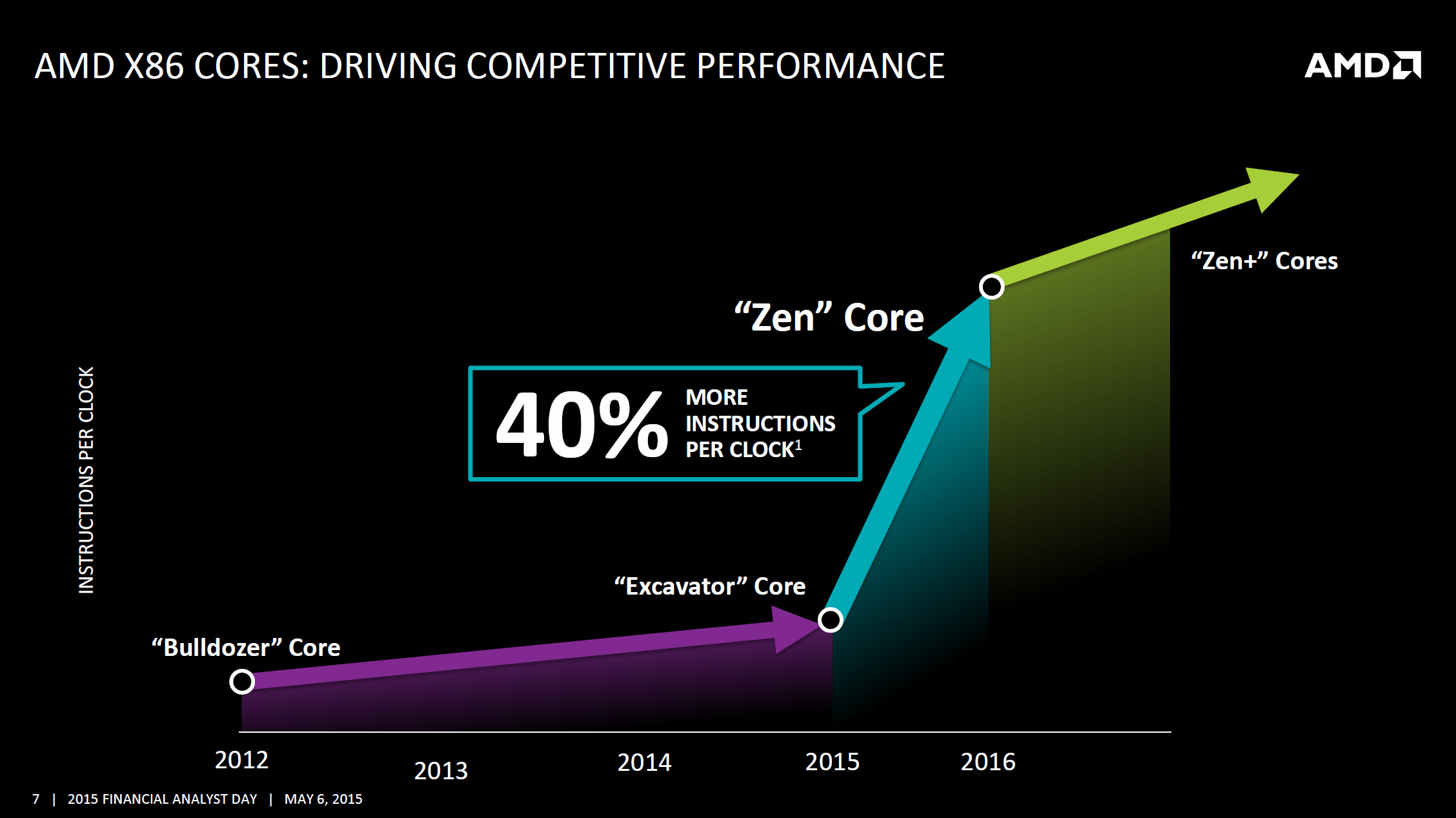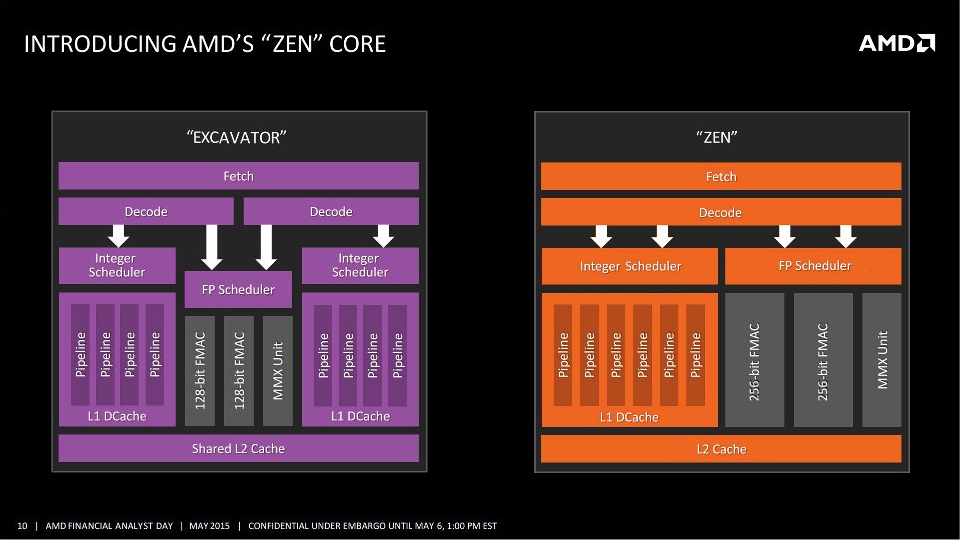AM4 will be a unified platform for both AMD CPUs and APUs
AM4 will be a unified platform for both AMD CPUs and APUs
Â
AM4 will be a unified platform for both AMD CPUs and APUs, allowing AMD’s future users to easily transition from one CPU to another without changing their motherboard.Â
For years APUs and CPUs from AMD have been using different CPU sockets and motherboards, which makes transitioning between platforms difficult. This move will allow AMD users to move easily from CPU to CPU, especially when moving from low end to high end CPUs. This also allows AMD to have a single Unified series of motherboards for both platforms too, which should give motherboard manufacturers to have more time to work on each motherboards design and BIOS.Â
AMD’s AM4 platform and their Zen CPUs were first expected to be coming in late 2016, but now rumors are suggesting that AMD AM4 motherboards will be coming as soon as march 2016, with the first CPUs being the Excavator based Bristol Ridge of products.Â
Â
Â
AMD had reportedly finished testing on their new Zen CPUs core designs several months ago, saying that the design has “Met All Expectations” with no “Significant Bottlenecks”, meaning that AMD’s Zen CPUs should be as competitive with Intel as AMD had set out to be.
The source from the real world tech forums has word from a former AMD employee, who still has connections inside to company has said that AMD is yet to finalize the clocks and TDPs of of what retail units but that the server market is “very excited” about the upcoming launch. Â
AMD’s Zen CPUÂ cores are will be to be coming in 2016 on a 14 or 16nm FinFET process and from the CPU block designs that we have seen (below) AMD will be focusing on Zen’s per core CPU performance, rather than focusing on delivering more, but limited, CPU cores than their previous Bulldozer designs.Â
Rather than iterating on the AMD Bulldozer CMT design, AMD has returned to a single fetch, single decode design. This means that AMD is focusing on a single more powerful CPU in it’s CPU block rather than 2 weaker CPU parts that share resources. As we can see below AMD will be widening the Integer Pipeline of Zen by 50% compared to excavator and will be replacing the dual 128-bit Floating point schedulers with dual 256-bit schedulers, which together should allow AMD’s new cores to have dramatically better integer and floating point performance per CPU core, especially as the CPU’s Floating point units no longer feed two CPU cores.Â
Â
So far the AMD Zen CPU cores are looking a lot like the Phenom’s of the past, which fills me with a lot of excitement as I used to own an AMD Phenom II 1090T, one of the best AMD CPUs of recent years, which was sadly replaced by the rather disappointing AMD Bulldozer lineup.
AMD’s Zen CPUs will debut in 2016 with Summit Ridge, which will come with a new socket and with DDR4 support, which should hopefully bring AMD back into the races against Intel who have been rather relaxed when it comes to CPU performance improvement year on year, focusing more on mobile and other low power applications rather than increasing their IPC/ per core performance. Â
Unifying AMD’s future desktop CPU and APU platforms is no doubt a great thing for consumers, allowing us to have a much easier time when moving from one CPU to another. Hopefully AMD will be using their new AM4 socket over several future generation of products, from Zen to Zen + and possably beyond, though that ill require AMD to have a very competitive feature set which will include M.2 and U.2 support and USB 3.1.Â
Â
You can join the discussion on AMD’s AM4 socket being a unified platform for AMD CPUs and APUs on the OC3D Forums.Â
Â
AM4 will be a unified platform for both AMD CPUs and APUs. Easy upgrades! https://t.co/Ak0eksmp10 pic.twitter.com/Hivzb4jWpj
— OC3D (@OC3D) January 11, 2016






